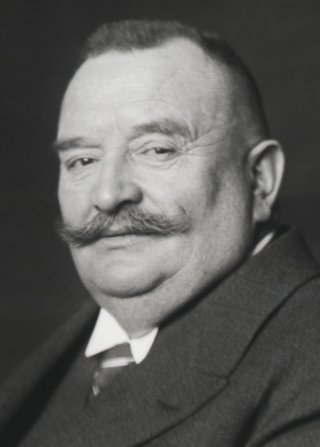Josef Kollmann

Personalia
Born:
Died:
Profession:
Persecution:
Detention 12.03.1938,
Imprisonment 21.03.1938 - 29.04.1938,
Memberships
Curriculum Vitae
Josef Kollmann trained as a merchant from 1883-1887 and attended commercial college. 1890-1893 he does his military service. In 1894, he moved to Baden near Vienna, where he initially worked as a commercial assistant in his aunt's textile business, before taking over the business as an independent merchant in 1899. However, he soon became involved in politics as part of the Christian Social Party (CSP), initially as a municipal councillor in Baden from 1903 to 1938 and as mayor of Baden from 1919 to 1938. He was also a member of the Lower Austrian provincial parliament from 1909-1915, a member of the Constituent National Assembly in 1919/20 and a member of the National Council from 1919-1934. In 1926, he became Federal Minister of Finance in the Rudolf Ramek cabinet. In 1921, he became an honorary member of the student fraternity Amelungia in Vienna and a founding member of Badenia Baden in 1928.
After the establishment of the corporative state, he warned against the elimination of democracy and spoke out against the dissolution of the Social Democratic Party. Together with Governor Josef Reither, Georg Prader Sr. and others, he tried to mediate between Engelbert Dollfuß and the Social Democrats before the February riots of 1934. When this failed, he resigned from public office - with the exception of mayor of Baden.
After the Anschluss, Franz Schmid, the leader of the National Socialists in Baden, took over as mayor. On March 12, Josef Kollmann was placed under house arrest, then arrested and briefly taken to Baden District Court. After his release, he is placed under house arrest again. He refuses to provide blank signatures:
"But I refused the request. The gentlemen then threatened to report me to the court, with a criminal investigation, public prosecutor and arrest. I stuck to my refusal and the gentlemen left."
He was then arrested again: "When I was arrested, I asked the gendarme if he had a warrant for my arrest; he said no. He said he did not. If he didn't know that he couldn't arrest me without one, he replied that he could do so if I was in danger. I followed the force."
After 40 days in custody and nerve-wracking interrogations by the Gestapo, he was placed under house arrest again. After two years of uncertainty and fear, he is brought to trial. The trial for abuse of office and embezzlement of fund monies takes place on September 4 and October 2, 1940 at the Vienna Provincial Court. The prosecution demanded two years in prison, but he was acquitted, which was also confirmed at the appeal hearing.
Josef Kollmann summarizes this as follows:
"Mayor Schmid had forgotten two circumstances in his calculation: Firstly, that there were still upright legal advisors in Austria, even in the Austria of the National Socialists, and secondly, that in this Austria there were also still Austrian judges according to the old Austrian tradition. Therefore, the attack had to go wrong ...".
The appeal lodged by the public prosecutor's office against this was rejected by the Reich Court in Leipzig on May 16, 1941.
After the war, he was briefly appointed mayor of Baden by the Soviet occupying power; he retired from this office in 1946.
Citations
Krause, Peter/Reinelt, Herbert/Schmitt, Helmut (2020): Farbe tragen, Farbe bekennen. Katholische Korporierte in Widerstand und Verfolgung. Teil 2. Kuhl, Manfred (ÖVfStG, Wien) S. 173/174.; Photo: ÖVfStg
